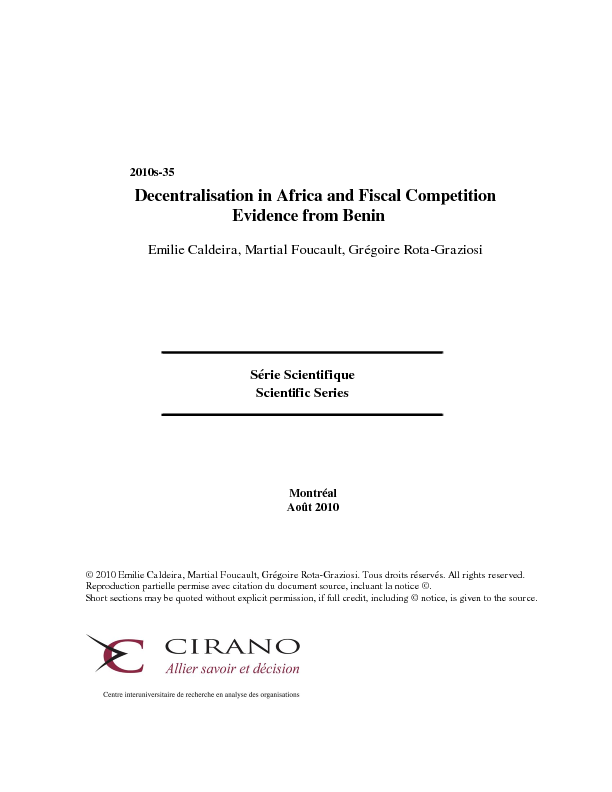Decentralisation in Africa and Fiscal Competition Evidence from Benin
Without denying particular dimensions of the decentralisation in Sub-Saharan countries, this paper applies standard reasoning from the fiscal federalism literature to a developing country and tests the existence of strategic interactions among local Beninese governments, called communes'. We first propose a two-jurisdiction model of public expenditure interactions, considering a constrained Nash equilibrium to capture the extreme poverty of some communes. We show that spillovers among jurisdictions involve strategic behaviours of local officials who have sufficient levels of fiscal resources. Second, by estimating a spatial lag model, our analysis provides evidence for the presence of strategic interactions in Benin, contingent on communes' fiscal autonomy. Such interactions arise among communes which are geographically or ethnically close. We also highlight both an opportunistic behaviour of local governments before local elections and an effect of partisan affiliations. This African democracy appears to be as concerned as developed democracies with strategic fiscal interactions.
[ - ]




